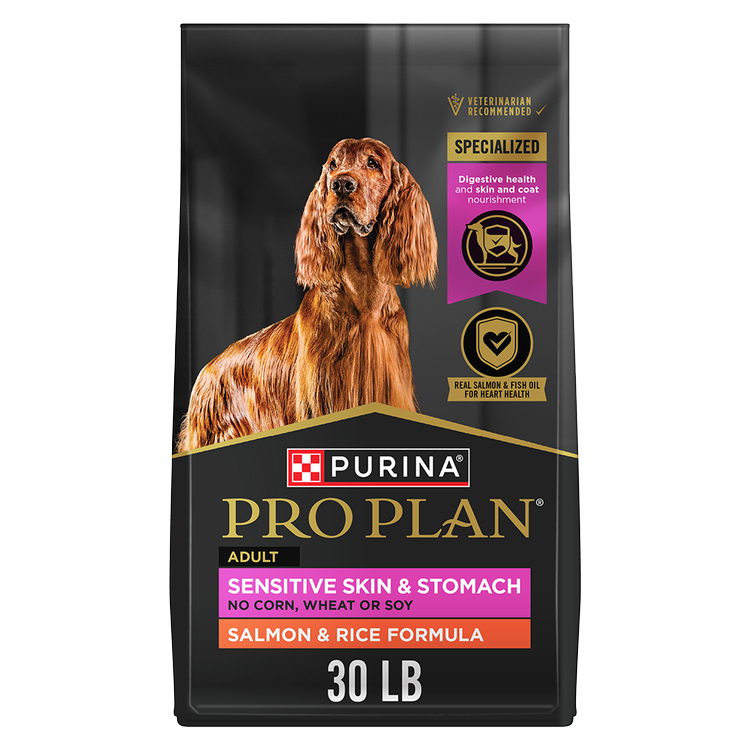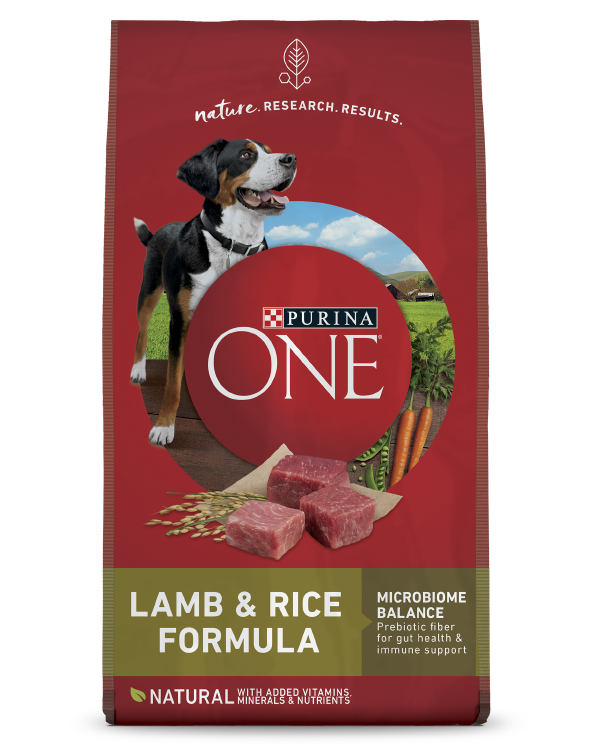Dog Stomach Problems & Gastrointestinal Disease


Dog stomach problems are familiar to most pet owners. While pets who eat dog food for sensitive stomachs may have fewer digestive issues, signs of stomach upset such as diarrhea and vomiting seem to happen to all canines at some point.
In many cases, digestive distress goes away on its own after a short time, and the problem resolves itself.
Other times, however, these seemingly benign symptoms are indicative of a more serious medical condition.
How do you know the difference between when you can let the problem work itself out and when it’s time to visit your veterinarian?
Here’s some guidance to help you better understand your dog’s digestive problems, identify symptoms and know when to seek medical assistance.
The Gastrointestinal System
To better understand your dog’s digestive upset, it helps to know more about their gastrointestinal (GI) system.
The GI system’s main function is to absorb nutrients ingested from food and to excrete waste products (a.k.a., feces); this process is known as digestion. The GI system includes the mouth, esophagus, stomach, intestines and more.
Dog stomach problems usually result from disturbances to or inflammation of the GI system. These disturbances can impair your pet’s ability to properly digest nutrients.
Symptoms of GI Distress in Dogs
Gastrointestinal distress is one of the most common reasons dogs are brought to their veterinarian. There can be a wide range of symptoms of dog digestive problems, including:
- Loss of appetite
- Excess gas
- Vomiting
- Constipation
- Diarrhea
- Difficulty swallowing
Some issues may resolve with time. More serious conditions, however, could result in weight loss, dehydration and debilitation.
If you notice any of these in combination with signs of stomach upset, contact your veterinarian. They can formally diagnose the problem and determine the appropriate treatment.
Causes of Dog Digestive Problems
Gastrointestinal disorders disrupt the digestive system. These problems can be caused by a wide range of factors, including:
- An abrupt change in diet. Your pet’s GI system may not be prepared to adequately process new food if you introduce it too quickly.
- Trauma. Stress can cause stomach problems such as diarrhea.
- Indiscretionary eating. Dogs who eat everything from trash to scraps may get an upset stomach.
- Toxins. Certain plants, chocolate and household cleaners are just a few items toxic to dogs.
- Allergies. If your pet has a food allergy, it may result in diarrhea or vomiting.
- Foreign objects. Non-food objects not meant to be digested can harm the GI system.
- Medications. Side effects from certain drugs may have a negative impact on your pet’s stomach.
Infectious Diseases
GI distress in dogs can also be caused by an infectious disease.
Parasites such as worms and Giardia are transmitted to your pet when they ingest parasite eggs in water, food or feces. Depending on the type of parasite, symptoms may include diarrhea and vomiting, as well as a distended belly and weight loss.
Diagnosing Dog Digestive Problems
With so many potential causes, diagnosing your dog’s problem can be a challenge for your veterinarian.
To complicate matters even more, the disorder can originate in any part of the dog digestive system, from the mouth and esophagus to the stomach, liver, pancreas and intestinal tract.
Typically, your veterinarian will review your dog’s medical history and ask you details about their symptoms. For example, they might want to know about the size, consistency and color of your dog’s stool.
After a physical exam, the veterinarian may want to run diagnostic tests such as bloodwork or examine a stool sample for parasites.
Treating Dog Stomach Problems
Depending on the severity and type of problem, your dog’s treatment can involve dietary management with specialized dog food, medical management or even abdominal surgery.
If your veterinarian is concerned about your dog’s hydration, they may want to give your pet fluids. Depending on the issue, other treatments for GI distress might include antibiotics, antidiarrheal drugs or anti-vomiting medication.
Prevention
While there is no guaranteed solution to preventing dog digestive system problems from happening, there are steps you can take to limit them.
Feeding your pet complete and balanced dog food is a good place to start.
Food with probiotics also supports gut health by introducing beneficial bacteria in the digestive system. This can help keep the harmful bacteria in check.
Additionally, try to limit the presence of parasites and disease through good sanitation. Clean your dog’s food dish and water bowl regularly and remember to wash their bedding.
It’s likely your pet will experience dog stomach problems at some point. Fortunately, by understanding the causes and symptoms and using preventative tactics, you can limit GI distress.
Want more health tips for your dog? See what our experts have to say on our Pet Expertise page.
Related articles

Reward Yourself with myPurina
Earn and redeem rewards for Purina products with the myPurina app.





